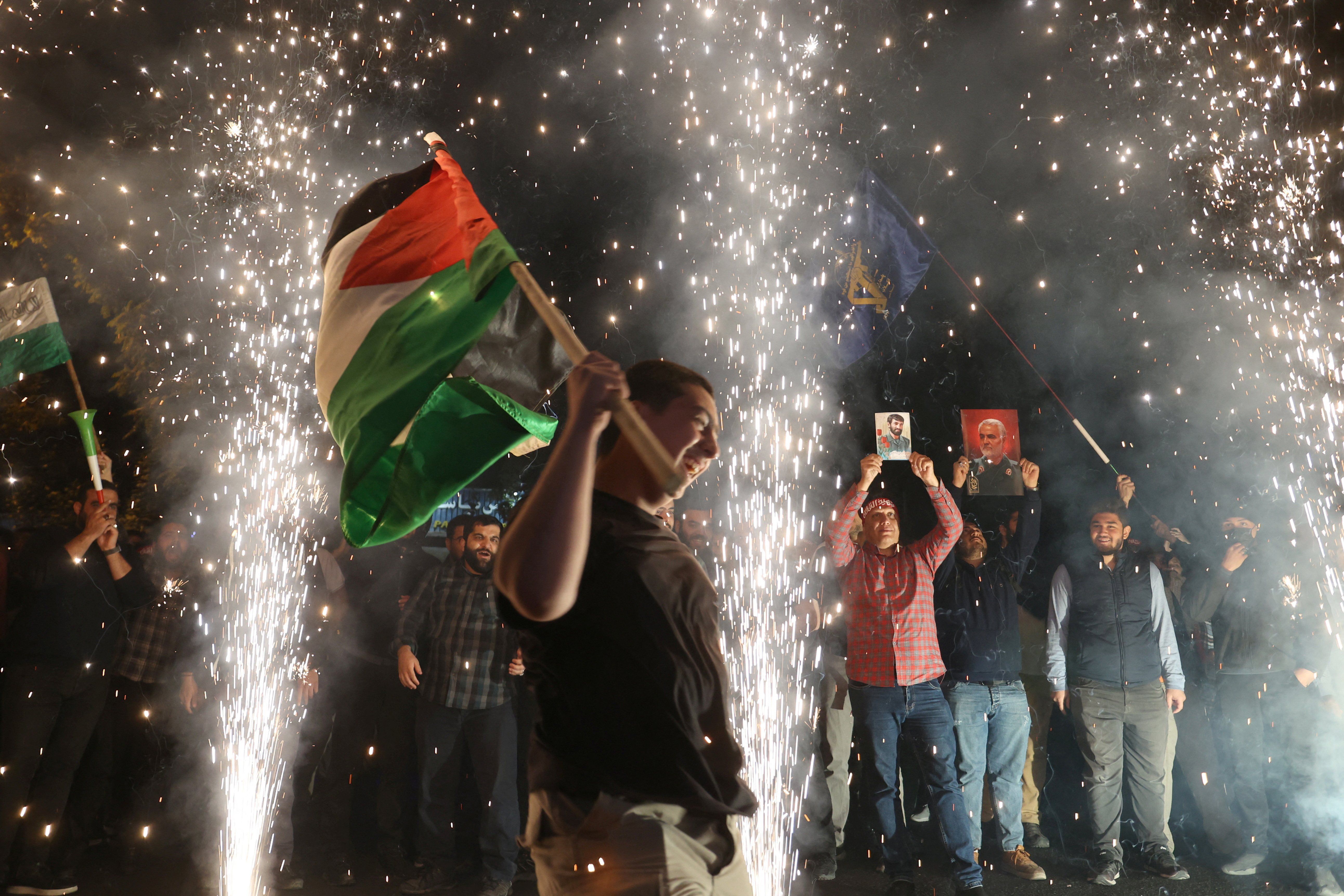Iranians celebrate Hamas's assault on Israel during a gathering in support of Palestinians, in Tehran, Iran, on Oct. 7, 2023.
While much of the violence is along the Gaza border and southern Israel, Israeli defenses on Saturday began ramping up in the north to deter possible involvement of Hezbollah.
There were reports Sunday of rocket fire from the Lebanon-based, Iranian-backed militants, but these appeared to be limited in scope. So far, says Eurasia Group expert Gregory Brew, “the attacks on the border from Hezbollah are likely symbolic and designed to send a message to Israel, discouraging Israeli escalation on the northern border.”
While Hezbollah doesn’t seem interested in getting directly involved now, says Brew, the group has warned that if Israel goes into Gaza in force, “it could cause a response on the northern border and expand the crisis.”
When it comes to Iran, however, the answer is a bit more nuanced. Iran has long supported Hamas – to the tune of financial support of around $70 million a year, plus material support and training, says Brew.
“There were immediate responses – positive responses – from officials in Iran,” he adds, which suggests that they had foreknowledge. “It’s very unlikely that Hamas was able to plan and pull off this operation without Iran knowing about it.”
Iran supports Hamas as a proxy group, trying to apply pressure on Israel from afar. “Iran knew about the attack, most likely, and is celebrating the attack,” Brew says, “but determining whether it was directly involved is very difficult to do at this time.”
A Wall Street Journal report, citing Hamas officials, claims Iranian security officials did help plan the assault. But direct involvement wouldn’t fit with Iran’s recent strategy of de-escalation in the region, including normalization efforts with Saudi Arabia and the big Iran, Saudi, and China deal earlier this year. Tehran has also sought improved relations with the UAE and Qatar, and there have been efforts to de-escalate tensions with the United States, which led to a recent prisoner exchange and Iran’s efforts to pull back from nuclear enrichment.
The White House has said there is no indication of direct Iranian involvement, but if that changes or if Tehran throws itself into the fray, it “would place pressure on Israel to respond, likely directly responding against Iran,” says Brew. This would present a considerable regional escalation risk.
In the meantime, “Iran is happy to see Hamas sow chaos inside Israel,” Brew adds, noting that the attack will likely slow the normalization efforts between Saudi Arabia and Israel, which benefits Tehran. Forcing Israel to focus on domestic security concerns, after all, means it has less time to conduct an attack against Iran.
As for any speculation of Russian involvement, Brew is dismissive because Moscow has been trying to maintain fairly good relations with Israel.
- What we know (and don't know) about Iran's role in the Israel-Hamas war - GZERO Media ›
- Ian Explains: How Israel & Iran went from friends to enemies - GZERO Media ›
- What’s Iran’s next move? - GZERO Media ›
- Israel's war in Gaza has emboldened Iran, says Karim Sadjadpour - GZERO Media ›
- Will Israel's war spread north? The view from Lebanon with Kim Ghattas - GZERO Media ›
- Israel & Gaza: Is a ground invasion of Gaza likely? - GZERO Media ›
